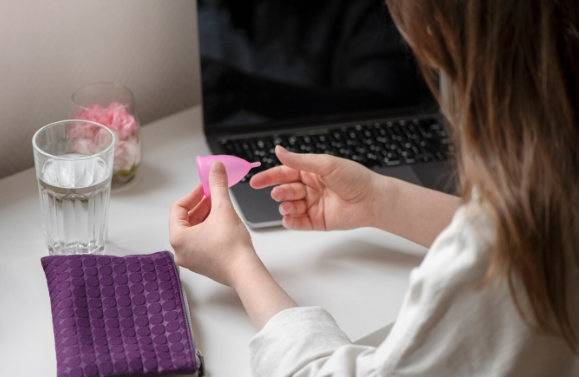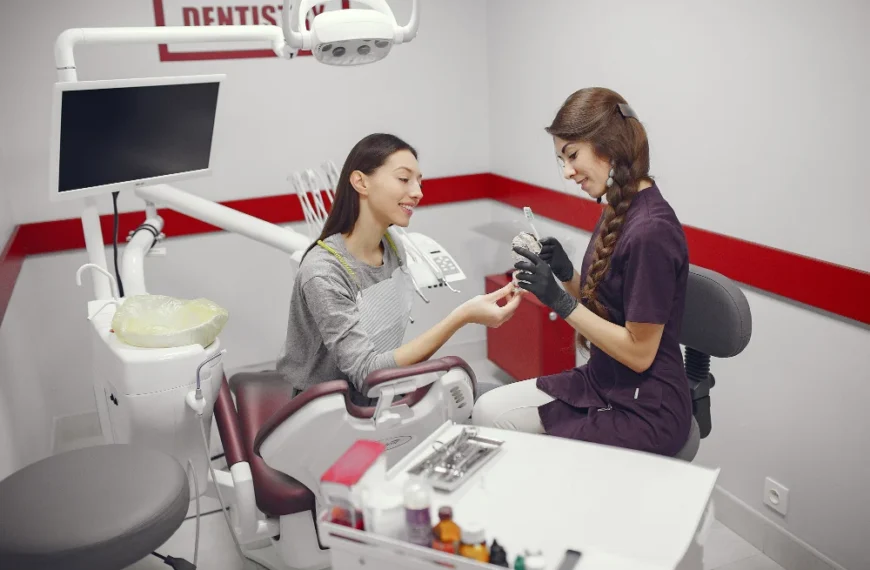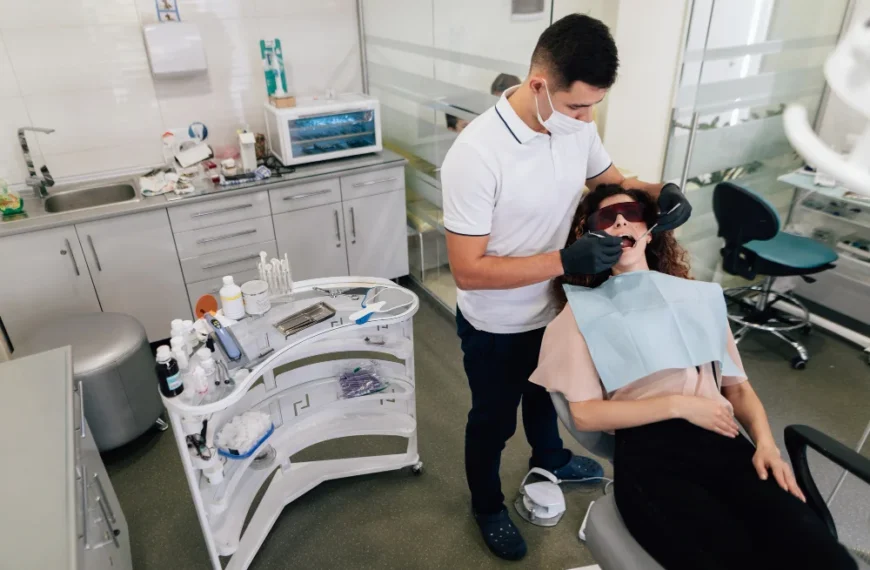Menstrual health at work is a critical factor shaping the well-being and productivity of millions of women worldwide. Yet, despite advances in workplace inclusivity, many still face challenges managing menstruation comfortably and sustainably while on the job.
For environmentally conscious women seeking plastic-free, non-toxic menstrual care, addressing period needs in the workplace is a personal and ethical priority. Find out why menstrual health at work deserves attention, how current practices fall short, and practical steps companies and individuals can take to support healthier, more respectful work environments.
Understanding Menstrual Health at Work
Menstrual health at work goes beyond access to sanitary products. It encompasses awareness, support, and resources that enable employees to manage their periods with dignity and minimal disruption.
Why is This Issue Pressing?
Research indicates that many women experience discomfort, stress, or stigma related to menstruation during working hours. This can affect concentration, attendance, and overall job satisfaction. When workplaces fail to address these needs, it sends a message that menstruation is a taboo topic, rather than a natural part of life.
The environmental impact of traditional period products adds a critical concern. Plastic-based pads and tampons contribute up to 200,000 tons of landfill waste each year in some countries. Women who want to reduce their environmental footprint face a lack of suitable options at work, increasing frustration.
The Current Landscape: What Women Face at Work
Many workplaces still lack basic accommodations for menstruating employees, which impacts health and productivity.
Common Challenges Include:
- Limited access to eco-friendly period products: Most office restrooms stock only conventional plastic-based sanitary products, forcing women to bring their own or resort to less sustainable options.
- Insufficient restroom facilities: Restrooms may lack disposal bins for reusable products or have poor cleanliness, creating discomfort.
- Stigma and silence around menstruation: Few workplaces openly discuss menstrual needs, which can cause employees to hide their discomfort or miss opportunities for support.
- Rigid work schedules: Employees often feel unable to take breaks or adjust duties during heavy flow days.
What Ethical, Plastic-Free Period Care Looks Like in the Workplace
The rise of premium, non-toxic menstrual products reflects growing demand from women seeking healthier and greener alternatives.
Key Features of Eco-Friendly Period Care
- Plastic-free materials: Products made from organic cotton, bamboo fiber, or medical-grade silicone reduce plastic waste.
- Non-toxic ingredients: Avoiding chemicals, fragrances, and dyes protects sensitive skin and overall health.
- Reusable options: Menstrual cups, period underwear, and washable cloth pads offer sustainable, long-term solutions.
- Discreet and comfortable designs: Products that suit active lifestyles and workplace demands help women stay comfortable throughout the day.
Why Workplaces Should Invest in These Options
Providing environmentally conscious period care aligns with corporate social responsibility and sustainability goals. It shows respect for employees’ health and values, potentially improving retention and morale.
How to Improve Menstrual Health at Work: Practical Steps
Supporting menstrual health requires intentional actions from employers and employees alike. Here are a few steps workplaces can take to create a more inclusive and comfortable environment for menstruating staff.
For Employers
- Stock Sustainable Products: Offer free or subsidised organic cotton pads, tampons, or menstrual cups in restrooms. Consider partnering with ethical suppliers to ensure quality and availability.
- Create Supportive Facilities: Ensure restrooms have bins suitable for disposing of reusable products and maintain high cleanliness standards.
- Foster Open Dialogue: Encourage conversations about menstrual health in wellness programmes or employee resource groups to normalise the topic.
- Flexible Policies: Allow flexible break times or work-from-home options during heavy menstrual days to reduce stress and discomfort.
- Educational Resources: Provide information on menstrual health and sustainable options through newsletters, workshops, or intranet portals.
For Employees
- Advocate for Your Needs: Request eco-friendly products or facilities if not available. Many companies respond positively when made aware.
- Bring Sustainable Supplies: Keep reusable products handy, but choose designs that suit your work routine for ease and confidence.
- Share Knowledge: Support colleagues by exchanging tips or sharing resources about menstrual health and sustainability.
Real-World Impact: Case Studies in Menstrual Health at Work
Seeing how organisations have successfully addressed menstrual health offers valuable lessons and inspiration. These real-life examples demonstrate the benefits of thoughtful, sustainable practices.
Tech Firm Implements Plastic-Free Period Products
After employee feedback, this UK-based tech company began supplying organic cotton tampons and pads in all restrooms. Within six months, 85% of female employees reported feeling more supported. The company noted fewer sick days attributed to menstrual discomfort, indicating a link between support and productivity.
Sustainable Fashion Brand Offers Menstrual Leave
This brand introduced a menstrual leave policy alongside workshops on menstrual health and sustainable products. The initiative boosted employee satisfaction scores and attracted more women applicants, reinforcing the brand’s ethical stance.
Addressing Misconceptions and Under-discussed Insights
Menstrual health often comes with assumptions and gaps in understanding. Addressing these lesser-known facts can shift perspectives and encourage more open, informed conversations.
- Menstrual health isn’t just a “women’s issue”: Inclusive workplaces recognise that menstruation affects coworkers, managers, and HR teams. Awareness benefits the entire organisation.
- Plastic-free products don’t mean inconvenient or uncomfortable: Modern designs prioritise comfort and discretion, making them suitable for professional settings.
Supporting menstrual health can reduce healthcare costs: Proper menstrual care reduces infections and other complications that might lead to time off work, and providers like its4women offer health insurance to support women’s wellness needs. - Sustainability in menstrual care extends beyond products: Packaging, shipping, and disposal practices also impact environmental footprints and should be considered.
What to Look for in Workplace Menstrual Products
Choosing the right menstrual products for the workplace involves balancing comfort, sustainability, and health. Here are a few things to look out for:
- Certified organic materials (cotton, bamboo)
- Biodegradable or compostable packaging
- Absence of synthetic chemicals or fragrances
- Comfort-tested designs suitable for daily work activities
- Options for reusable products with clear disposal guidelines
Steps for Employees to Promote Sustainable Menstrual Health
Employees play a vital role in advancing menstrual health and sustainability at work. Taking proactive steps can help create a more supportive environment and encourage wider adoption of eco-friendly period care.
- Suggest product trials or pilot programmes to management
- Join or create wellness committees focused on health inclusivity
- Share articles, statistics, and personal stories to raise awareness
- Practice and advocate for respectful language and attitudes around menstruation
- Choose suppliers and brands aligned with sustainability values
Why Menstrual Health at Work Matters for Everyone
Supporting menstrual health goes beyond personal comfort. It shapes workplace culture and signals a company’s commitment to wellbeing and sustainability. When employees feel their basic needs are met respectfully, engagement and productivity improve.
For environmentally conscious women, having access to plastic-free, non-toxic period products at work aligns daily routines with their values, reducing stress and environmental guilt.
Taking the Next Step
Businesses and individuals alike can start small but meaningful changes today. Whether it’s introducing a supply of organic period products or simply talking openly about menstrual health, every effort counts.
To explore sustainable period care options suitable for your workplace, consider partnering with providers specialising in ethical, premium menstrual products. Investing in menstrual health reflects respect for people and the planet.






